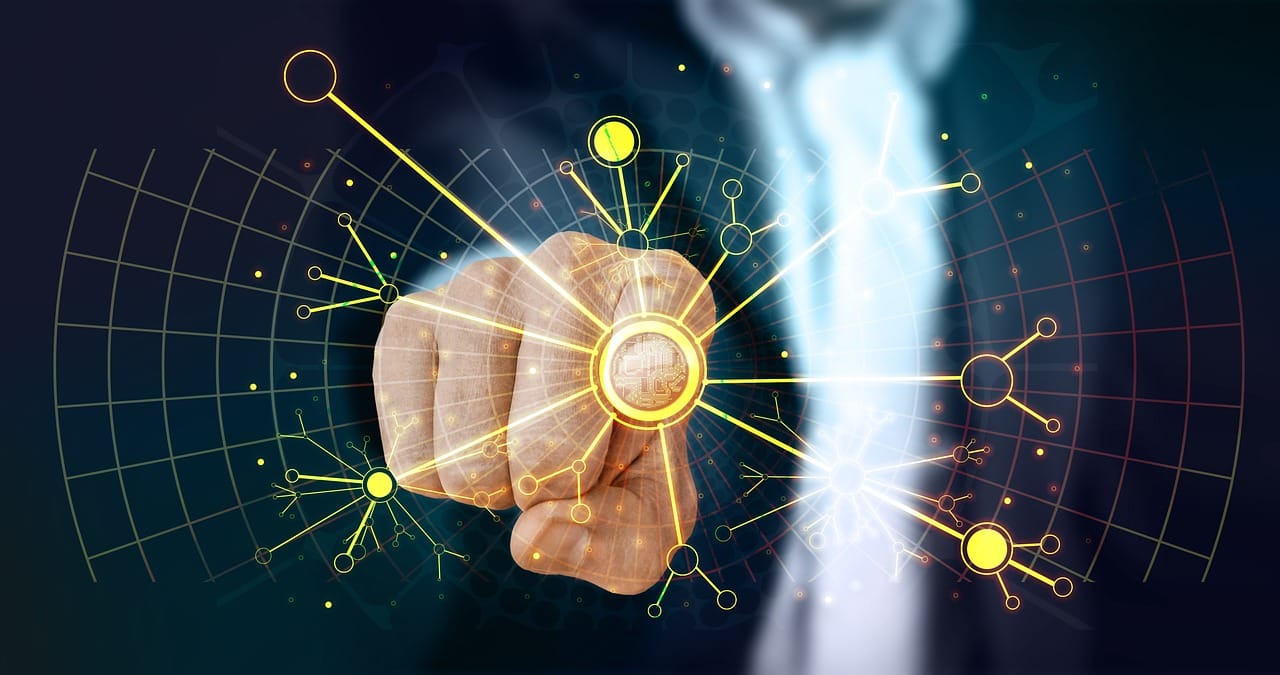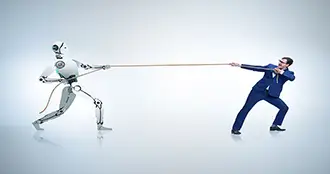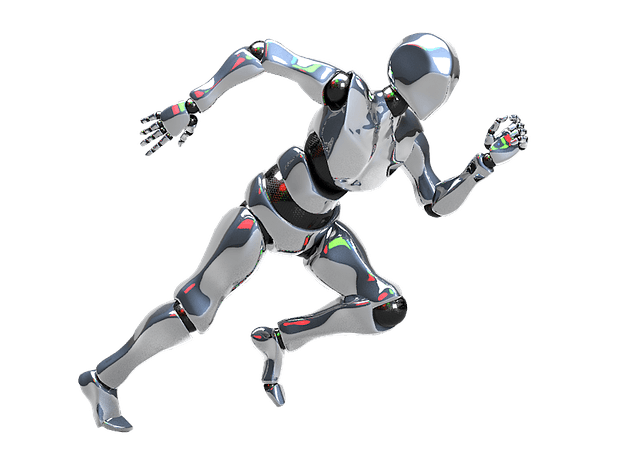Employment vs. AI: Navigating the Future of Work
Artificial Intelligence is arguably one of the best innovations so far. AI immediately changes the lifestyle, work, and interaction that a human has with the world around. On the other side, AI also creates a few problems; the biggest issues that show up deal with employment. As AI continues to improve, so it is only natural to question: What will the future of human jobs look like? Will AI open up new prospects, or will it lead to mass unemployment? In this blog, we embark on the complex interplay of work and AI, as well as what that spells for the work one does in the years to come.
An Introduction and Development to AI
Artificial Intelligence refers to a situation where a machine, particularly computer systems, is enabled to perform things which are normally the domain of human thinking. AI is a broad category of many technologies that have to do with machine learning, natural language processing, and robotics. These technologies give capability that would otherwise require human intelligence to machines: speech recognition, decision-making, and solving problems.
In the last ten years, artificial intelligence has advanced at a phenomenal pace, creating the ability to undertake tasks of an ever-increasing scale of complexity. From self-driving cars to virtual assistants like Siri and Alexa, AI has already entered into our lives. But with these improvements in AI, it’s slowly having a much stronger effect on the workforce. AI and Job Automation: The Double-edged Sword.
One key way in which AI will impact work includes job automation. Automation simply means the use of technology to perform tasks done by humans so far. Although automation is not breaking news, AI took that to the next level, as with the help of AI, even machines can perform tasks that require cognitive skills: data analysis, decision-making, and even somewhat content creation.
On the other hand, automation has its applications with two benefits in the case of a business: it increases efficiency, decreases costs, and improves accuracy. All those benefits apply for people working there. On the one hand, it is a way to relieve humanity by freeing them from tedious and routine chores, giving them the possibility to deal with work that is more important and creative in nature. On the other hand, it is job displacement; hence, the machines are programmed to take on the tasks executed by humans.
Jobs at Risk: Who’s Most Vulnerable?

Not all jobs are as up for automation as each other. Many are, but some are more susceptible to being automated than others, depending on the nature of tasks involved. Generally, jobs that have routine and repetitive tasks are at a greater risk of becoming automated. This places manufacturing, data entry, customer service, and retail in the higher ranks.
For example, robots have been used in the manufacturing industry for many years to execute activities like assembling products and packaging goods. With recent AI innovations, such robots can do much more, thus requiring less human intervention. Similarly, AI-driven chatbots in customer service will be increasingly able to handle customer inquiries, thereby reducing the demand for human agents.
However, not only low-skilled jobs are threatened, but also some highly skilled ones. For example, AI in the finance, legal, and medical field uses the abilities of data analysis, drafting documents, and making diagnoses. Although such tasks were previously the exclusive preserve of highly skilled professionals, AI today is able to do it with a good level of precision and might maybe in the future significantly reduce human labor.
The Future of Work: New Opportunities in Sight

Though AI and automation pose challenges with respect to employment, there are also so many employment opportunities emerging. On one hand, some jobs are being substituted, but on other hands, there are new ones appearing that are linked with artificial intelligence and technology in general. For instance, there is a lot of demand for AI specialists, data scientists, and cybersecurity experts. These kinds of jobs need very particular skills in the development, implementation, and maintenance of artificial intelligence systems.
This is in addition to the fact that jobs are created, as its role is also transformed. For example, AI can extend the human mind for the performance of his tasks in a more capable and effective way. In health, it helps doctors in diagnosing diseases, so one can take care of his health more accurately and timely. For education, this personalization of the learning experience by teachers through intelligent tools catering to every single student has bettered his educational outcomes.
Concurrently, AI is giving birth to new industries. The most common and prime example is the creation of an industry focusing on self-driving cars with the rise of autonomous vehicles. On the same note, AI itself is now powering trails in renewable energy, biotech, and space. These are new paths being put into place for future employment.
Reskilling and Upskilling: Preparing for the AI-Driven Future
As concern grows over the ways artificial intelligence is restructuring employment, one of the greatest essential challenges we face is getting a workforce ready for post morning tomorrow. This may well mean a keen focus on reskilling the workforce or moving ahead with a new set of skills. Reskilling refers to training a worker to take on new roles in a different field, while upskilling refers to enhancing the existing skill set to cater to the present job.
This, therefore, calls for the coordination of governments, businesses, and even educational institutions in the realization of the entire process. Governments should be able to make investments in programs that provide education and training to workers for availing skills necessary to actualize the economy into an AI age. Businesses will provide on-the-job training and development to help workers adapt to new technologies. Educational institutions will also have to change curricula to include AI-related topics to ensure that students are receive skills relevant to the jobs of the future.
In other words, the commitment to lifelong learning is going to be a requirement of workers who wish to stay relevant in the era of AI. Updating skills and knowledge is continuous, in order to pace with the technological variations being made; one has also to be very flexible and open-minded to what nature the work would take.
Ethical Considerations: Balancing Progress with Responsibility
As we move towards adoption of AI and unlocking new potentials in revolutionizing the workforce, ethical considerations emerge. Some of the major ethical concerns to consider are ways that benefits will be equitably created and shared. Where AI is potentially capable of opening up new opportunities and improving quality of life, there is also the risk that it will further extant inequalities if benefits are not shared equitably.
Another significant consideration of an ethical nature would be the influence of AI with regard to the rights and job security of a worker. Automation of various jobs poses a threat from the point of view where one may find themselves with no safety net. This should be taken care of and protected during such a vulnerable period. This includes providing unemployment benefits, setting a minimum wage, and ensuring that workers have access to retraining programs.
Finally, there remains the question of regulation of AI. In the period wherein AI emerges as a significant touch in all of our lives, there is raising the need for the consideration of guidelines and the ways it could be controlled so that it remains in line with good practices. Here, we may mention data privacy, algorithmic bias, and dark uses of AI.
Conclusion:
Embracing the Future with Caution and Optimism
Not an uncomplicated relationship with employment exists within the domain of AI, harboring challenges and opportunities in the future. It is in investing in education, training, and ethical considerations that AI serves as a force for good, working at the benefit of the workers and society at large. The future of work may be uncertain, but with the right approach, it can be a future where humans and AI thrive together.
